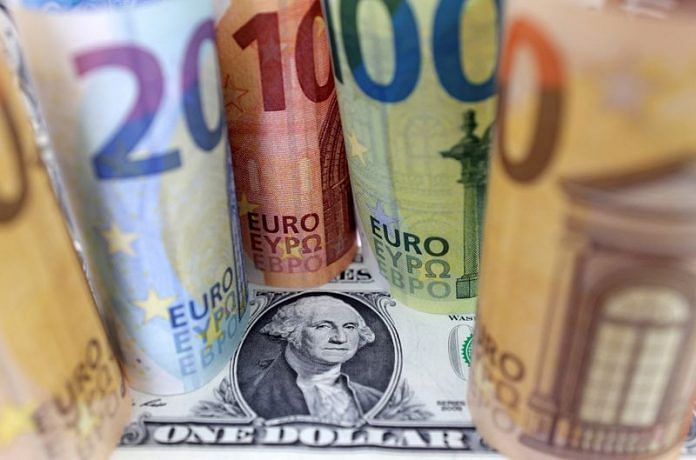By Tom Westbrook and Joice Alves
SINGAPORE/LONDON (Reuters) – The dollar rose on Wednesday, benefiting from its status as a safe-haven amid the risk of a U.S. debt default and as traders trimmed bets on imminent Federal Reserve rate cuts following solid consumer spending data in the United States.
U.S. President Joe Biden and the senior congressman, Republican Kevin McCarthy, have edged closer to a deal to raise the U.S. debt ceiling – but nothing is clinched yet.
While Biden said that any default would land the economy in recession, investors fear the impact globally would be negative, and consequently see the greenback as a safe haven.
Against a basket of peers, including the euro, yen and sterling, the dollar index rose 0.3% to 102.96, to its highest since early April.
It rose 0.4% against the yen to a two-week peak of 136.99 and to 0.5% against sterling to $1.2422, its highest versus the British currency since April 26.
“A crushing blow to the world’s number one economy can only have negative shockwaves to the global economy, and reduce risk appetite, which would thus become a safe-haven event,” Rabobank strategist Jane Foley said.
Expectations for U.S. interest rate cuts any time soon were dampened by the solid increase in April consumer spending, and by comments from Fed officials.
Chicago Fed President Austan Goolsbee said it was “far too premature to be talking about rate cuts”, and Cleveland Fed President Loretta Mester said rates were not yet at a point where the central bank could hold steady, given stubborn inflation.
Interest rate futures pricing implies no chance of a rate cut in June, down from about a 17% chance seen a month ago.
“We expect some modest further increases in the dollar as markets continue to take out pricing for rate cuts,” said Commonwealth Bank of Australia strategist Joe Capurso. “A rate hike is possible this year, though the hurdle is high.”
The New Zealand dollar was broadly steady at $0.6232, with investors looking ahead to a 25 bp interest rate hike next week and perhaps one more after that.
“We see a 20% chance of a 50 bp hike and a 5% chance of a pause,” analysts at ANZ Bank said. “Either could backfire by driving down future … expectations.”
The euro fell to a six-week low against the dollar, down 0.3% at $1.0831.
European inflation data is due at 0900 GMT, though little deviation from preliminary figures is expected.
Turkey’s lira, which has been under pressure since election results leave open the possibility of President Tayyip Erdogan extending his rule – and his unorthodox economic policies – hit a fresh 10-week low of 19.75 per dollar.
The Thai baht, which had initially climbed on strong election results from progressive parties, slipped 0.5% as politicians enter what could be a protracted period of dealmaking until a government is formed. [EMRG/FRX]
(Reporting by Tom Westbrook in Singapore and Joice Alves in London; Editing by Angus MacSwan)
Disclaimer: This report is auto generated from the Reuters news service. ThePrint holds no responsibilty for its content.



